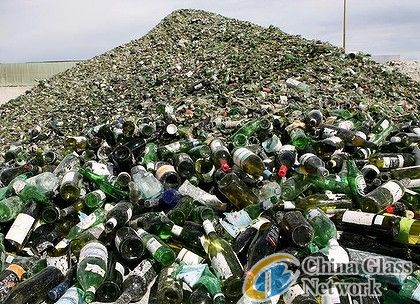Post Time:Aug 30,2011Classify:Company NewsView:423
JACOB'S Creek has shipped an entire batch of wine destined for its British and Irish markets to be bottled offshore rather than locally as a hedge against the rising Australian dollar, as the currency squeezes margins for Australian winemakers and threatens the profitability of the sector.

Australia's largest wine brand and owned by French beverages group Pernod Ricard, Jacob's Creek sent off its flagship ''Classic'' label wine in massive steel containers last month for the first time, with wine historically destined for its Barossa bottling factory now to be packaged in Europe.
''We are certainly not the first, and we won't be the last,'' said Brett McKinnon, the managing director of Orlando Wines, which looks after the Jacob's Creek brand for its French owners.
''Definitely a lot of other [winemakers] have done it, and it's something we have looked at over the last 10 years.''
Mr McKinnon said calls from European customers to constrict its carbon footprint had encouraged the wine company to bottle its production run closer to market, but the recent strength of the Australian dollar had also been a major factor.
Other local winemakers are following suit with Australian Vintage, owner of popular brands including McGuigan and Nepenthe, announcing last week the record high exchange rate would force it to undertake packaging and bottling in Britain to reduce production costs on exports. Recent wine sector figures show nearly 50 per cent of Australian wine exports are ''bulk'' shipments, with a growing proportion of that trade represented by bladders of wine shipped offshore to bypass the sting of the Australian dollar.
Winemakers Federation of Australia CEO Stephen Strachan said the local wine industry was facing its toughest trading conditions for two generations.
''The primary reason is the dollar and it affects our competitiveness offshore and also has an impact in terms of wine imports coming into Australia,'' he said.
The rallying dollar has loosened the grip of Australian wines on traditionally strong markets in Europe and North America, with many unable to compete with cheaper wine shipped from South America.
''It's that tough that it means the difference between being set for the next two years or having a marginal business,'' said John Geber, owner of Chateau Tanunda in the Barossa Valley.
''Our European customers are saying, we can't sell Australian wine for that price, so we will go to Sicily, or instead of Australian chardonnay we will take white wine from Spain, or take South African. What they are doing is essentially taking Australia out of contention because we are missing our price points on the 'sell' side in Europe.''
Mr Geber said he would probably walk away from important contracts supplying wine to two leading German supermarkets because of the high dollar.
The impact is quickly spreading from winemakers down through the manufacturing chain. Penrice Soda Holdings, the only manufacturer in Australia of soda ash, a vital ingredient in wine bottles, booked more than $20 million in writedowns this month, plunging it into a full-year loss.
The cost squeeze has also come to the attention of US-based Owens-Illinois, the world's biggest glass packaging supplier, with its executive chairman and president Albert Stroucken laying out the dilemma for American stock analysts in July.
''Our shipments of wine and beer bottles in Australia and New Zealand were down nearly 20 per cent from the prior year,'' he said.
''In particular, Australia wine producers reduced in-country bottling given the dramatic increase in the value of the Australian dollar.''
Jacob's Creek produces 7 million cases a year globally with a substantial part of that headed for Ireland and Britain, where the wine is a top-four brand.
Source: http://www.smh.com.auAuthor: shangyi
PrevGlass industry organizations join together to address life cycle assessment
Price of Zhejiang Float Glass on August 30, 2011 from China Glass NetworkNext